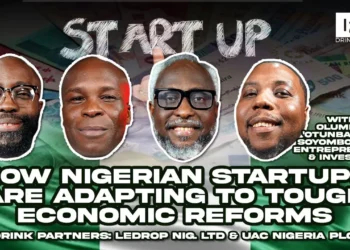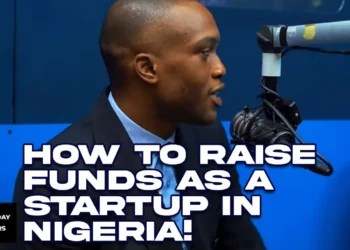These Nigerian Startups may not ‘make it’ to 2019, if they don’t change their business model.
Disclaimer!
This is not a death sentence and we do not categorically believe that these Startups will fail. Please direct any question you might have about this post to @UgoDre. The post is based on public information and might not reflect the current strategy of the businesses being analysed here. That said, let’s get into it.
Introduction
Last week, I profiled a few Nigerian tech startups which I believe will make a real dent in 2018. Feedback from that article suggests a demand for my opinion on startups which I believe will struggle this year. Like I have always mentioned and will continue to emphasise, a startup is a business, simple! If we are not careful, we will continue with this “startup” thing and never create real value for anybody.
Like I must have mentioned in previous posts, the Nigerian VC industry is still emerging, so you can’t expect to always have investors’ funds to subsidise operational sustainability. What I am saying is that you can’t continue to raise equity to support operations. If your business cannot pay for its own running, then you might have to check that business again. Trust me, I am in support of raising capital, especially for rapid growth and expansion, but not because you can’t pay salaries or rent.
Wait wait wait! Depending on the stage of your business, you might need to raise equity, but please note that this strategy is not sustainable in the long run. If your business cannot survive without raising money, then you probably don’t have a business.
So today, I will write about startups which I believe will struggle this year, describe their businesses, state why I believe they will struggle and what I think they can do to salvage the situations.
Releaf
Releaf is a B2B marketplace for agricultural products. It wants to help African businesses prosper by helping them find partners who they can trust. According to the cofounder, Ikenna Nzewi, “the internet hasn’t made finding a trusted business easier. Existing B2B portals are full of fake businesses trying to deceive people. Because of this 419, many businesses don’t trust B2B internet portals. I’ve spoken with tens of agribusiness entrepreneurs and they’ve told me their businesses are struggling to grow because of a lack of trust and reliability with other businesses. They don’t need another portal with thousands of random businesses. They need a shortlist of the ones they can trust. We have created a free solution to this problem.”
Releaf is trying to solve the trust problem which is endemic, but I have fundamental issues with the way they are going about it.
First, the founders do not seem to understand the Nigerian context that well. They are really smart people with degrees from the best universities in the US, but they might lack the local understanding of the industry whose problem they are trying to solve. From what the COO said, he has “spoken to tens (not hundreds) of agribusiness entrepreneurs and they’ve told” him what their challenge is.
That said, I also believe that creating an online portal for the farmer in Taraba is stretching their luck. Haba! The guy who can barely operate his palasa mobile phone will be required to log in to the internet to find trusted buyers? The platform also requires incorporation documents from both the sellers and buyers. This again is a big deal. How many farmers in Bauchi are registered with the CAC? It looks the founders are trying to solve the problems of an American farmer, definitely not a Nigerian one.
If the platform is focused on cash crops like cocoa, with international pricing, then I believe this model can work. This is because the farmers planting these types of crops know that the price of their produce is determined in some commodity exchange, so they have to follow the trend. Creating a trust environment for these types of farmers might be a better approach.
Additionally, looking at the success story of Twiga Foods, they focused on 3 crops and leveraged mobile penetration and M-Pesa not internet penetration and apps. Twiga Foods controls the supply chain; they deal with the farmers directly, while the buyers buy from them.
Releaf could employ a similar model. Rather than being a marketplace, they can be the sellers of the produce which would be sourced from their own trusted farmers. This is not simplistic as it comes with a lot of logistic hassles, but like Twiga Foods, they can start with maybe 2 crops then expand the portfolio.
Matattu
This essentially is Uber for auto-rickshaws (Keke Napep). According to Techpoint, Samuel Ajiboyede (Founder), has been a tech enthusiast since childhood and serial entrepreneur whose background speaks volumes about his passion for technology.
In 2009, he quit his job as a director at Robert Johnson — a software and telecom company that provides solutions to banks and telcos — to start a keke transport business. While running this, he proceeded to enhance his knowledge about innovation and global strategy management at Harvard. After his studies in 2016, he founded Workclick, an on-demand service that matches trained worker-partners/professionals and domestic onsite services to customers, which has a presence in San Francisco and Nigeria. What’s more interesting is that he founded Fleet Partners, a fleet management and leasing firm, back in 2012.
He soon realised how much Nigerians have embraced ride-sharing and eHailing. With his intuitive understanding of technology, he quickly figured that it was easy to marry eHailing with an existing love for kekes. The outcome of his conception is Matattu, an on-demand transportation network for hailing tricycles online.
My biggest struggle with this product is that the target users are not clearly defined. If you understand how people use keke right now, you will be able to guess that an on-demand version of it might not work. Let’s take a step back to pre-Uber. Most people who could afford to take taxis always had one taxi guy’s number on speed dial who was called when they needed to get to places urgently. Even if the guy was not around, he could send the number of another guy or you could walk to the nearest taxi park. The point is that the users’ behaviors justified the need for an on-demand taxi app, hence Uber.
Now keke napep. I am not sure how many people have their keke guy’s number on speed dial. Even if they do, regulation will not allow the ride within certain parts of Lagos. The other challenge is that of the target market. Who is Matattu targeting? The people that can afford to hail a ride have options (Uber or Taxify). Why should I hail a ride to the junction?
Now, to the technology. Matattu wants keke drivers to download an app. Really? I love the fact that the CEO has been engaging the association of keke operators, the Lagos State Government, Federal Road Safety Corps, etc. My challenge is that the solution is akin to that of trying to kill a fly with a pistol. We don’t need an app to hail keke. Haba!
I will suggest that Matattu ignores the keke market and focuses on bikes. Trust me, if it is not raining, I might decide to abandon my car and hail a bike just to cross the third mainland bridge. Matattu cannot do that for me right now.
Drivertise
Drivertise is a social enterprise that promotes businesses by pairing them with everyday car users, who use their cars as mediums of advertising, thereby earning extra income. It is an online platform targeted at consumers who are looking to earn extra money by helping brand partners run advertising campaigns on their vehicles.
Great idea, I believe. But the business will struggle simply because of our culture. A car is that machine that moves you from point A to point B, that’s all. So, if you saw my car dirty, I don’t necessarily care once the engine is fine and it won’t breakdown on the road. Unfortunately, I am in the minority. I was shocked to learn that most men see their cars as their girlfriends, babies or their first wives. That is why these people block roads if you hit their cars.
Imagine that you go to such people (who are in the majority anyway) and ask, “How much would you require (per month) to wrap an Indomie advert round your car?” Then you will understand why Drivertise will struggle to make money. This is because the price will be too expensive for the advertiser to pay.
Additionally, Lagos state government will have to sic the Lagos State Signage and Advertising Agency (LASAA) on such cars and the owners will then have to pay the annual LASSA fees, etc.
For this model to work, I think Drivertise should forget about private car owners and target the taxi drivers (yellow taxis) instead. I am sure they won’t mind earning a few extra thousands of naira by just wrapping ads round their cars. In fact, they will do it gladly. Uber and Taxify are making their businesses less attractive, hence the need to diversify income streams.
Others
Others include payment gateways and freelance marketplaces. I believe that the market for payment gateways is too small to make any real impact, and the major merchants are creating their own gateways anyway. Also, remember that most payments in Nigeria happen offline. I would rather you target those ones rather than the web payment thing. Alternatively, you can pursue backward integration by becoming a payment infrastructure provider. However, be aware of who you want to battle against – NIBSS, InterSwitch and Flutterwave. I will just look for another business to do.
Regarding the freelance marketplace, the biggest risk here is that of intermediation. Once the user gets in touch with the professional, that is the end of the platform. It will be difficult to guaranty repeat usage. Why should I come to your platform to hire a new graphics designer when I have the phone number of the guy who worked for me the last time?
Conclusion
My preferred title for this article is “This is not a death sentence” however, @UgoDre knows better. In that spirit, I sincerely wish the entrepreneurs success in their businesses.
Happy Entrepreneuring.


















